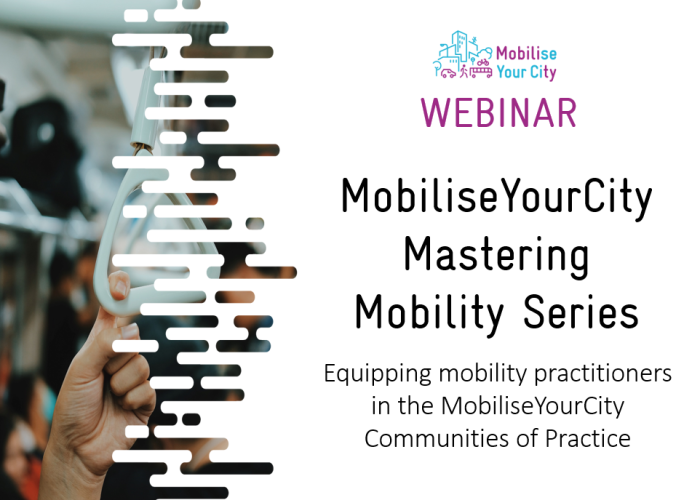Mastering Mobility Training "Introduction to Sustainable Urban Mobility Plans"

The first session of the Mastering Mobility Training Series was structured around how sustainable urban mobility planning goes beyond traditional…
- SUMP
Reports & Case Studies
MobiliseYourCity Partnership
Launch of a roadmap for the development of high-quality walking and cycling facilities
Addis Ababa is a rapidly growing capital that relies on the evolvement of safe and high-quality walking and cycling facilities. In regard of the high percentage (54 percent) of residents walking for the majoritiy of their daily trips, a convenient pedestrian infrastructure is crucial to encourage the use of non-motorised transport modes. Nevertheless, pedestrians face many challenges in the city, and poor infrastructure impedes their daily trips. Inadequately sized footpaths, dangerous crossings, and inadequate illumination, are all examples of issues that shall be tackled with the non-motorised transport strategy from 2019-2028.
Cycling, on the contrary, is " a mode for short-distance trips, primarily among low-income and risk-taking males", as the paper on the transport strategy states. The local bike sharing project "Bisiklet Megarat", initiated by the Addis Ababa Road and Transport Bureau (AARTB), is an opportunity to facilitate and encourage cycling for a broader public. In preparation of the launch of the bike sharing system, residents of Addis Ababa are invited to provide feedback on the locations for Bisklet Megarat stations and routes for protected bike lanes. The bike sharing system shall start with 500 cycles serving areas in the city centre, aiming to expand in future phases to 10,000 cycles across Addis Ababa. The Bisiklet Megarat Website offers detailed information on the map, routes and design of the bike.
Read the full report on the non-motorised transport strategy via the link below!